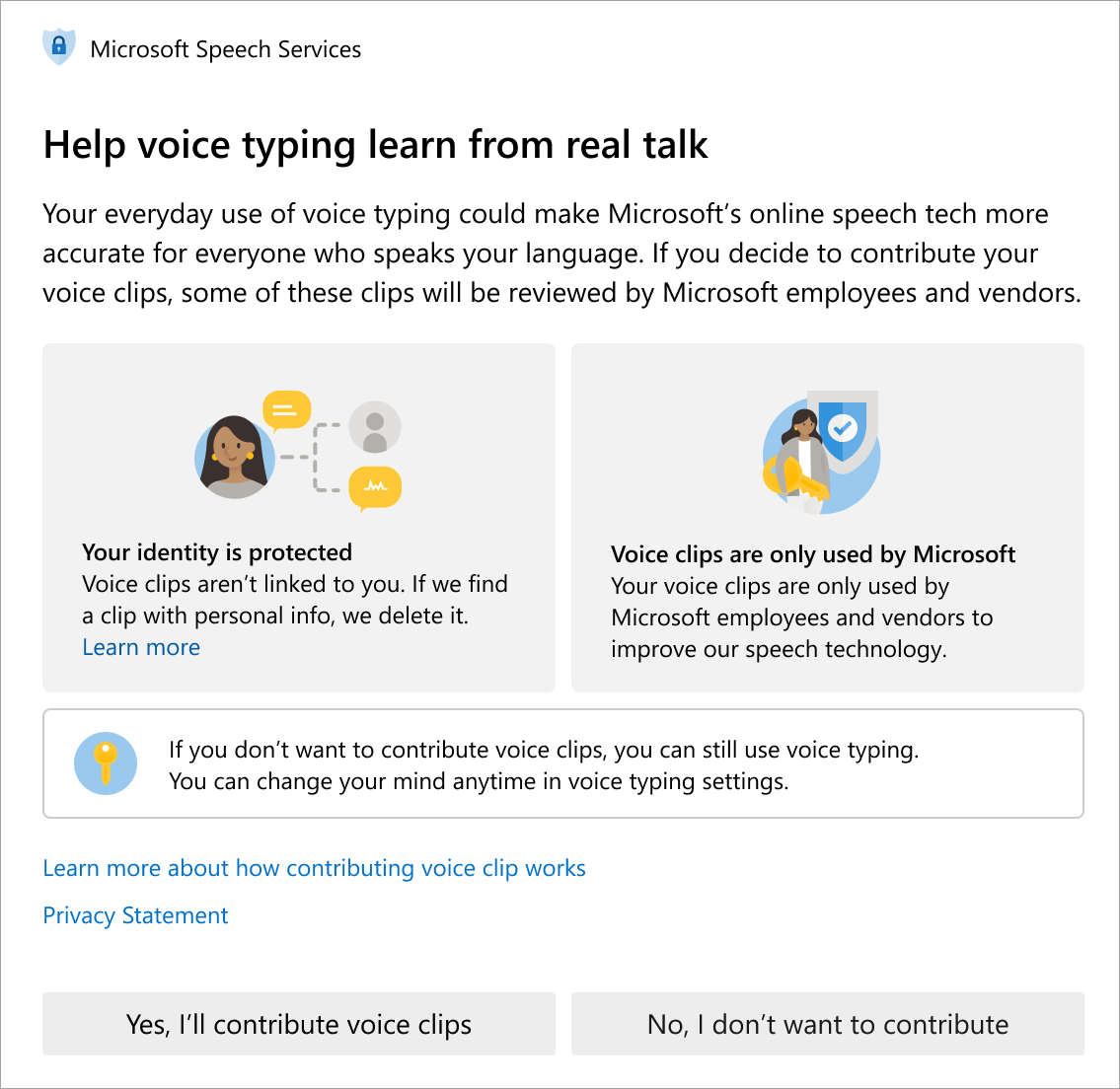Microsoft Allows users to Manage their Voice Clips - Course Monster Blog

Microsoft stated Friday that it is updating its user consent experience for speech data to provide customers with more real control over whether their voice data is used to improve products. Customers can now choose whether or not individuals can listen to recordings of what they said while speaking to Microsoft products and services that employ speech recognition technology, thanks to these upgrades.
If users allow in, these voice snippets may be reviewed to improve the performance of Microsoft’s artificial intelligence systems across a broad range of users, speaking styles, accents, dialects, and acoustic situations. According to the business, the goal is to make Microsoft’s speech recognition technologies more inclusive by making them easier and more natural to interact with.
Customers who do not want to submit their voice clips for human approval will be able to access all of Microsoft’s voice-enabled products and services.
Voice clips are audio recordings of what users said while interacting with voice-enabled goods and services, such as dictating a translation request or conducting a web search.
As speech recordings are processed in the cloud, Microsoft eliminates certain personal information from them, such as Microsoft account identifiers and strings of letters or numbers that could be telephone numbers, Social Security numbers, or email addresses.
Customers must actively opt to allow people to listen to recordings of what they said under the new voice clip settings. If they do, Microsoft workers and contractors may listen to the audio samples and manually transcribe what they hear as part of a process used by the business to build AI systems.
“We regard their transcription to be our ground truth of what was said inside that audio clip.” “We use that as a benchmark to see where our AI has to develop,” said Neeta Saran, a senior attorney at Microsoft in Redmond, Washington.
The more transcripts Microsoft has of how real people speak from voice snippets given by users, the better these AI systems will function.
While Microsoft personnel and contractors will only listen to voice clips with the user’s permission, the corporation may continue to access data related to user voice activity, such as transcriptions created automatically during user interactions with speech recognition AI. The specifics of how that works are detailed in the conditions of use for various Microsoft products and services, according to the corporation.

Meaningful Consent
These new voice clip settings are intended to provide customers with meaningful consent for individuals to listen to what they say when interacting with Microsoft products and services, as well as increased awareness of who their voice clips are shared with and how they are utilized.
“With this new meaningful consent release, we want to make sure we’re being honest with consumers about how we’re utilizing this audio data to improve our speech recognition technology,” Saran explained.
Because Microsoft eliminates account identifiers from processed voice clips, they will no longer appear on the privacy dashboard of customers’ Microsoft accounts, according to the company.
According to Microsoft, no human reviewers are used to listening to audio data collected from speech recognition features embedded into enterprise solutions.
Data Retention and Next Step
Microsoft will stop collecting voice clips processed by its speech recognition systems on October 30, 2020. The new voice clip options will be available in Microsoft Translator, SwiftKey, Windows, Cortana, HoloLens, Mixed Reality, and Skype voice translation over the next few months.
If a user agrees to allow Microsoft employees or contractors to listen to their voice recordings to develop AI technology, the business will keep all-new audio data submitted for assessment for up to two years. If a user-contributed audio clip is sampled for transcription, the corporation may keep it for more than two years to continue training and enhance the quality of speech recognition AI.
“The more diverse ground truth data we can acquire and use to update our speech models, the better and more inclusive our voice recognition technology will be for our customers across many languages,” Saran said.
Here at CourseMonster, we know how hard it may be to find the right time and funds for training. We provide effective training programs that enable you to select the training option that best meets the demands of your company.
For more information, please get in touch with one of our course advisers today or contact us at training@coursemonster.com




Comments ()